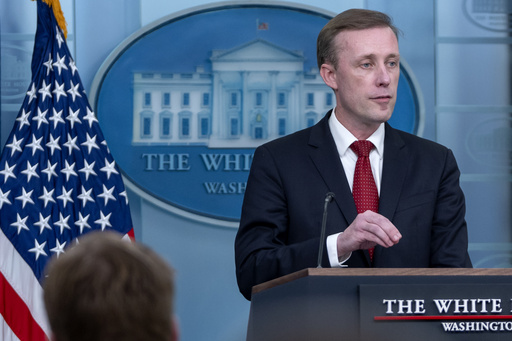WASHINGTON — On Friday, the United States unveiled a new set of sanctions targeting Iran’s energy sector as a reaction to the recent missile strike on Israel that occurred on October 1, where approximately 180 missiles were launched into the country.
Iran justified this attack as vengeance for significant losses its affiliate, the militant group Hezbollah, has faced from Israeli forces in recent weeks, especially amid the ongoing conflict in Gaza, which has seen Hezbollah launching rockets into Israel.
The sanctions announced on Friday specifically focus on disrupting Iran’s so-called “ghost fleet,” a term used to describe vessels and related companies operating in areas like the United Arab Emirates, Liberia, and Hong Kong, which are allegedly involved in obscuring the transportation of Iranian oil to buyers across Asia.
In addition, a network of businesses based in Suriname, India, Malaysia, and Hong Kong has been designated by the U.S. State Department for purportedly facilitating the sale and distribution of petroleum products originating from Iran.
Under current U.S. legislation, authorities have the right to impose sanctions on Iran’s energy sector as well as on international firms engaged in the trade of Iranian oil. While these energy sanctions are crucial, they pose a complex challenge, as restricting oil supplies can lead to increased prices for essential global commodities, affecting the U.S. and its allies.
Jake Sullivan, the U.S. national security advisor, remarked that the newly imposed sanctions “will help further deny Iran financial resources used to support its missile programs and provide support for terrorist groups that threaten the United States, its allies, and partners.”
These penalties seek to prevent these entities from accessing the U.S. financial system and prohibit American citizens from engaging in transactions with them.
For years, Israel and Iran have been involved in a clandestine conflict, but direct confrontations have been infrequent. However, the rising tensions and continuous assaults among Israel, Iran, and its allies in the region increasingly risk escalating into a broader regional war.
In April, Iran conducted another direct assault on Israel, but most of its missiles were intercepted by a coalition led by the U.S., while others either failed during launch or crashed during flight.
Treasury Secretary Janet Yellen stated on Friday that the United States “will not hesitate to take further action to hold Iran accountable.”


